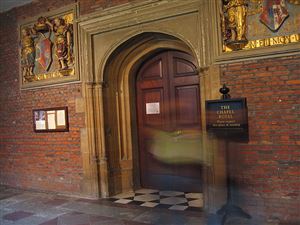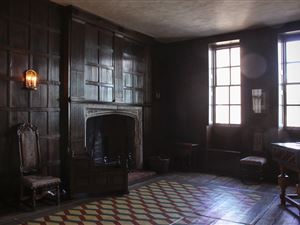The difference between leasehold and freehold

Do you know about the potential risks and benefits that come with choosing between freehold and leasehold? Learn which type of tenure is best for you
What are all these big words?!
Buying a house is never simple, even after you've climbed the proverbial deposit mountain and defeated the evil mortgage wizard to find your dream home! But wait! There's different ways in which you can own a house: Freehold or Leasehold. What do these words mean and is one better than the other? Let's take a look…
What is a freehold property?
Freehold is a type of land tenure. A land tenure is the rights under which you own or occupy a piece of land for a specified period. A freehold tenure simply means the owner has absolute possession over their property and the land on which it sits. In a freehold tenure the owner also has full responsibility for all maintenance and repairs to that property.
What is a leasehold property?
A leasehold tenure is where you own the property but not the land. When buying a leasehold property, it will come with a lease to use the land which would have been agreed in the past from the freeholder. To occupy the property you have purchased, you will likely also have to pay annual ground rent and maintenance fees to the freeholder.
Does it make a difference whether I buy freehold or leasehold?
Yes it can make a huge difference, freehold tenure is the most common form of legal ownership and is the hassle free option. Houses are usually sold as freeholds but flats and apartments are mainly are sold as leaseholds due to them being situated on common land.
Leasehold properties are generally a fair chunk cheaper than freehold equivalents but will incur annual charges. The number of years left on a lease will also determine value with more years left being the more valuable. It is not recommended to buy a leasehold property with less than 90 years on the lease – you will struggle to get a mortgage offer too.
Can you extend the term of a leasehold?
Yes. If your lease is 90 years or below you may want to consider it soon particularly if about to sell. There are government acts that protect leaseholders by giving them the right to extend their lease, but it's not free. A lease extension has value and therefore your freeholder will expect you to pay for it in the £1,000s and you will also have legal costs. Do not let your lease dip below 80 years as your lease extension cost will increase from this point on.
The freeholder may want to negotiate your offer and can even out right reject it, which then means you will have to settle the matter in court resulting in high legal expenses.
Can I buy the freehold on a leasehold property?
Yes. This is called enfranchisement, it's a complicated legal procedure and although costly it's an option well worth considering.
Other costs with freehold
If you own a freehold property you will be expected to pay the freeholder ground rent and a service charge for maintaining the building. This will be in the region of £800-£1000 a year in total but can vary wildly depending on the location and amount of maintenance needed, so make sure you check with the seller first!
On the upside, if the roof falls in you may not be liable for the cost of the repairs since this will be the freeholder's responsibility and what your maintenance costs go towards.
Is it true the Queen owns all the land in the UK?
Technically the Crown owns all the land and the deeds to a property or land gives that owner rights to it. However, if the Crown wants the land back it is entitled to do so but there are laws in place to ensure the owner is fairly compensated. So panic over!



